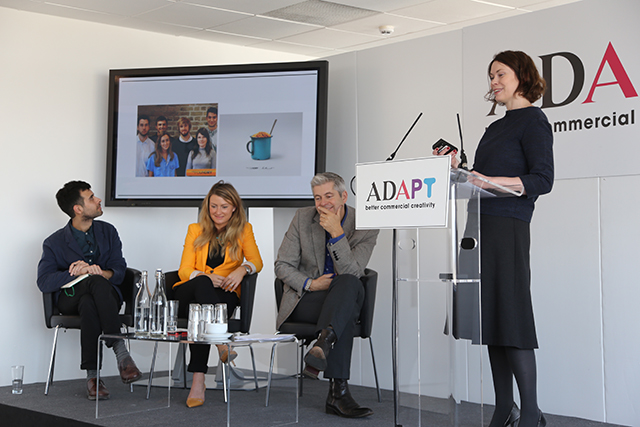Linking training to business goals, developing a long-term plan for talent, and putting continuous professional development at the heart of the agency’s culture, pays dividends, Sarah Baumann, Group Talent Strategy Director for Leo Burnett, told the IPA.
The agency’s public commitment to this was demonstrated, she said, by its status as one of only 13 IPA members to be awarded Platinum status for its CPD programme.
"All this sends out a powerful message to the talent we are trying to recruit," Baumann said, "as well as to our clients. They want us to be the best we can, and they can be confident we are focussing on our talent."
was speaking at the IPA Talent yesterday, October 7th. The event was designed to explore how agencies can better compete for talent, including attracting recruits that reflected the cultural and ethnic make-up of society and with the right creative and technical skills, as well as retention.
Attended by more than 175 senior agency management, about half of whom were HR directors, the event was the final strand of IPA President Ian Priest’s ADAPT agenda designed to create a platform to improve commercial .
Stay fresh
Baumann also advised that agencies work hard to keep their CPD plans fresh. Burnett had introduced, for example, courses in mindfulness and parenting workshops, as well as setting up a women’s network within the Publicis group. "You have to take a holistic view," she said.
Baumann gave the example of a CSR initiative, The International Exchange, under which Burnett staffers work with an NGO in the developing world for a month. "One person was so fired up by their experience, they persuaded us to start a specialist not-for-profit agency. So we created an agency under the Burnett umbrella called Change. It clients today include the RNLI and NSPCC."
But the key is linking CPD to business goals. "Because of that we have total buy-in from senior management. They teach, mentor and coach themselves. They do evaluations too," she added.
Engaging senior management so closely in CPD, said Baumann, meant "we don’t have to justify the investment we make in training to them."
Competitive recruitment
To see what the industry can learn about recruitment from other sectors, the IPA invited the government-sponsored programme that seeks to combat educational inequality by putting high-achieving graduates into schools in deprived areas for a two-year spell.
"We operate in a highly competitive environment, especially for STEM (science, technology, engineering, maths) graduates from Russell Group universities," said , Teach First’s acting director for graduate recruitment. "Typically, our target hires could go into careers that offer much higher pay and an easier life. So we have to make the Teach First employer brand comparable to other top employers."
Teach First’s strategy is to use the problem – the harmful effects of educational inequality – rather than the teaching profession to attract talent. "We talk to potential recruits about the impact they can have in schools," she said. "You could describe this as creating a social movement."
Ranked second in The Times Top 100 Employer rankings, Teach First is now a prestige brand, comparable to investment banks and leading consultancy and accountancy firms.
To attract enough students – next year’s target is 2,060, up more than 40pc on this year (and making it one of the UK’s largest graduate recruiters) – it focuses intensely on building close relationships with universities, maintaining an intense presence on campuses, and effectively running a CRM programme with those who express an initial interest. "We cultivate the students year-round," Ashton said, "and when they do apply the selection period is only 4-6 weeks."
Chasing 'unicorns'
One skill the advertising industry knows it needs is data scientists. But finding them is difficult, so much so that Juan Mateos-Garcia, a research fellow with innovation charity Nesta, (http://www.nesta.org.uk/) likens it to the quest for the mythical unicorn.
As competition for data experts mounts across the UK economy, said , it was obvious there was a supply shortage. Changing this had policy implications, including changing maths teaching, and curriculum development in schools and universities. In the meantime, employers should seek out overseas talent and, where possible, build better links with universities.
Industry, including advertising, also faced issues managing data talent. How could it judge it? Where should it locate that talent – centralised, or localised? And how could it make it work better with other disciplines?
Mateos-Garcia, currently working on a study to assess the skills implication of the data revolution, said perceptions of data jobs as boring needed to be changed. "You have to manage data talent as creative talent," he said. "Many data projects are creative, and employers shouldn’t treat data work as routine tasks."
Get involved on Twitter with the hashtag #ipadapt
Visit the IPA’s ADAPT hub www.ipa.co.uk/adapt where news from the events as well as the findings, photos and videos from this Adaptathon will be posted.


